A rich academic culture is crucial for the development of any research university. In 2019, Southern University of Science and Technology (SUSTech) continued its focus on cutting-edge interdisciplinary fields by holding international & domestic academic conferences and scientific research academic forums. These conferences and forums brought a multitude of idea exchanges between scholars, experts, faculty members, and students.
There are 979 high-level lectures, split into 792 science and engineering forums & 187 liberal arts forums. More than 80 academicians came to give talks at SUSTech, along with five Nobel Laureates. By the end of 2019, SUSTech has enjoyed presentations by more than 10 Nobel Laureates.
The SUSTech Lecture Series
Over forty lectures in the SUSTech Lecture Series took place throughout the year, with world-class speakers further cementing SUSTech’s status as a center for academic rigor.
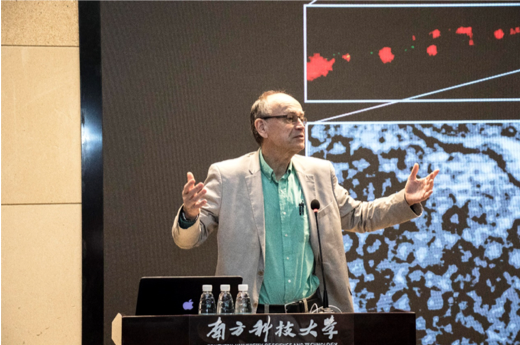
January 15th saw Joseph Sifakis, winner of the 2007 Turing Award, come to SUSTech. Not only was he joining SUSTech as a distinguished visiting professor, but he came to give the 209th lecture in the SUSTech Lecture Series. Professor Sifakis spoke about “Autonomous Systems – A Rigorous Architectural Characterization.” March 26th saw 2013 Nobel Laureate in Physiology or Medicine, Professor Thomas C. Südhof, from Stanford University School of Medicine deliver a guest lecture entitled “Mechanisms of Synapse Formation: Neurexins and Latrophilins as Key Effectors.” The next day, the Nobel Prize Winner in Physiology or Medicine, Professor Barry Marshall, gave an insightful report sharing how he discovered the role of helicobacter pylori (H. pylori) in causing stomach ulcers.
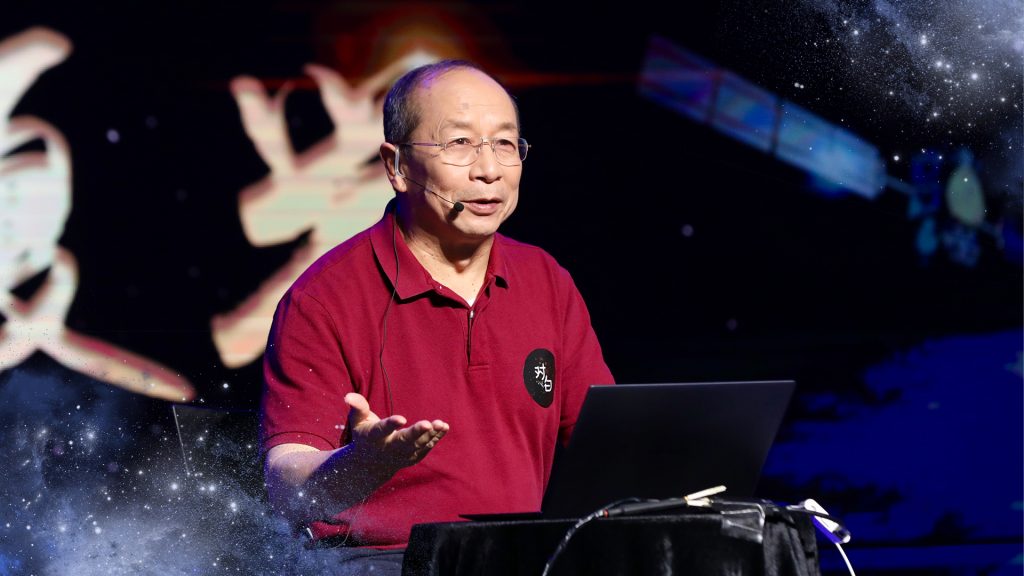
On 27th September, Runyang Gymnasium was brimming with excitement for a special edition of the SUSTech Lecture Series. Professor Jin Yinan from the International College of Defence Studies, National Defence University of the People’s Liberation Army, came to share his wisdom and positive energy to enlighten the audience. His lecture, entitled “A Century of Changes – From the Sick Man of East Asia to National Rejuvenation,” was attended by over 1300 students and faculty members, senior leaders, and officials from other Shenzhen-based universities. SUSTech also welcomed Palace Museum Research Institute Director Zhang Hongwei to campus, who gave the 242nd lecture in the SUSTech Lecture Series about “Gugongnology and General Education.”
The rich collection of lectures covered a broad swath of academic knowledge and a diverse set of cross-disciplinary fields while encouraging many people from wider Shenzhen society to attend SUSTech.
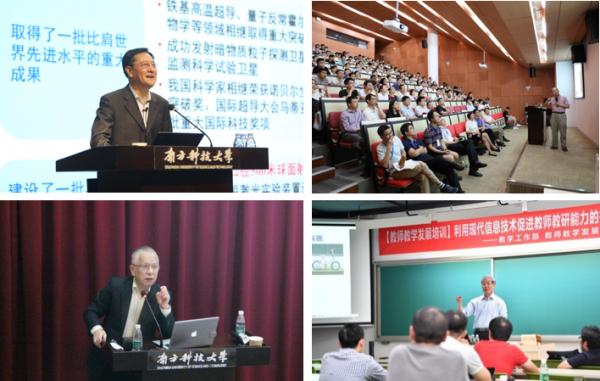
The success of the SUSTech Lecture Series has seen more departments create their lecture series. The Department of Mathematics and the Department of Chemistry have been running their academic addresses, so the College of Science invested in the College of Science Lecture Halls in 2019. It all works together to create an academically rich and diverse atmosphere, encouraging students to attend lectures that fall within areas in which they are interested and further supplementing the development of the talent pipeline at SUSTech.
The School of Humanities and Social Sciences rapidly expanded its lecture offerings in 2019, providing nearly one hundred lectures throughout the year through its constituent departments. It reflects the exploration of a new path of reform in the integration of the humanities and arts education with sciences, engineering, and medicine for higher education in China for the new era.
Exchanging news ideas at high-level forums in 2019
SUSTech has not only been a center for lectures by leaders in their academic fields but has also set itself as a platform for international and domestic conferences & forums. Top experts and scholars from across mainland China and around the world have spent time in SUSTech to share and collaborate in almost every discipline. These experts and scholars spent time with faculty members and students, sparking new ideas for research.
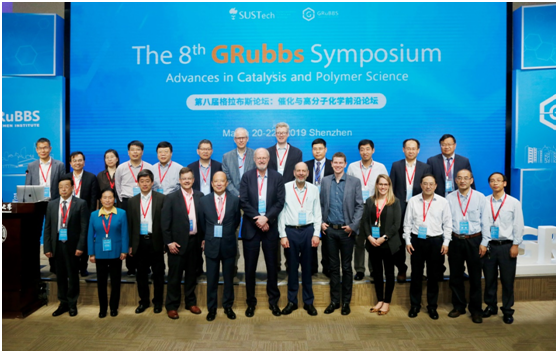
On the morning of March 21st, 2019, the 8th edition of the Grubbs Symposium opened on campus. Robert H. Grubbs, co-recipient of the Nobel Prize in Chemistry in 2005, the Victor and Elizabeth Atkins Professor of Chemistry at the California Institute of Technology (Caltech), a foreign academician of Chinese Academy of Science, and SUSTech President Shiyi Chen attended the opening ceremony. The theme of the symposium is “Catalysis and Polymer Science,” sponsored by the Shenzhen Grubbs Institute (SGI). Representatives of academia include professor Robert H. Grubbs and other 21 prominent scientists, including seven domestic or foreign academicians — Zuowei Xie, Gregory C. Fu, Wantai Yang, Qi Wang, Mitchell A. Winnik, Xiaoming Feng, and Scott J. Miller.
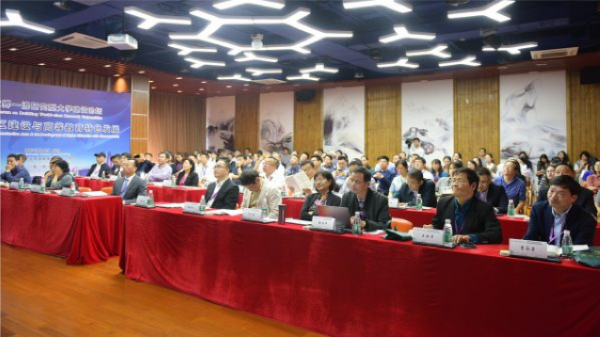
On October 22, the School of Humanities and Social Sciences worked with “Exploration and Free Views” magazine to host the “New liberal arts and innovative talent training high-end forum” (Forum). More than 30 scholars from universities and academic journals around mainland China joined ten members of the School of Humanities and Social Sciences at the Forum.
Academic leaders in global engagement from four continents joined together at the first International Symposium on “Innovation and Collaboration: The Future of Research Universities in a New Global Era” held at SUSTech on November 10th and 11th. The conference was organized by SUSTech Global, the university’s international office on the 5th anniversary of global partnership development at this young university. SUSTech President Chen Shiyi, a staunch champion of internationalization at both SUSTech and across Chinese higher education, attended and met with the more than 50 attendees representing over 30 world-renowned institutions.
From November 16th to 17th, SUSTech worked with its Center for Higher Education Research (CHER) to hold the First Forum on Building World-class Research Universities (Forum). More than 100 experts and scholars of higher education research around China came to SUSTech to discuss the development of higher education with Chinese characteristics in pioneering demonstration areas. They focused on the development of higher education within specific regions for world-class research universities, management of higher education institutions, and the development of the Greater Bay Area.
On December 19th, SUSTech launched its expert art & culture committee. The cultivation of top innovative talents requires an understanding of art & culture, which takes time. It was pointed out that SUSTech needs to take the initiative of promoting cultural values among scientific and technological leaders of the new era.
In 2019, SUSTech expanded on and strengthened its academic culture. The enhanced academic culture at SUSTech has become a core piece of the campus culture at SUSTech and will continue to expand throughout 2020.
Proofread ByXia Yingying
Photo ByStudent News Agency